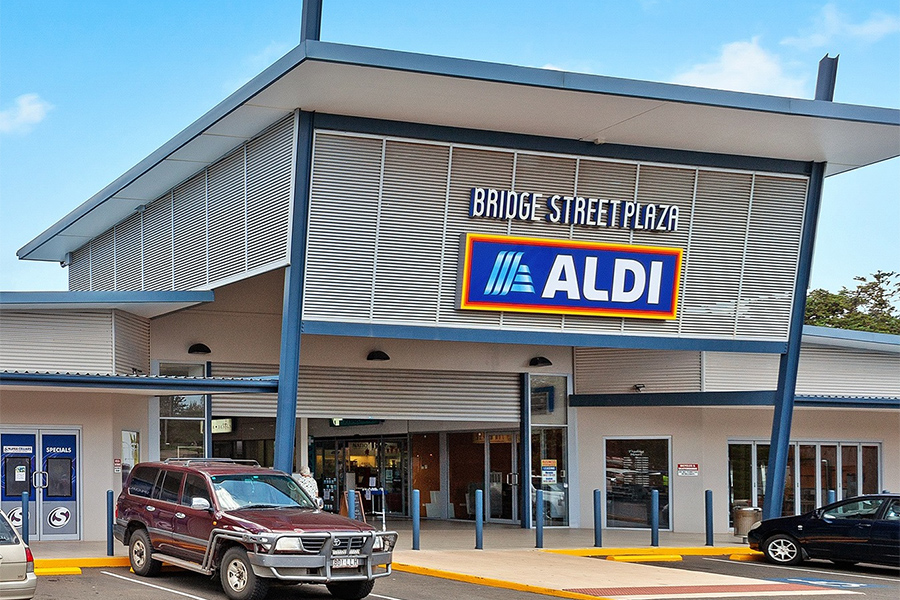In our regular column from the National Retail Association, Dominique Lamb looks at shopping centre retail and how her members are coping. She’s bullish about the coming tax cuts and thankful for JobKeeper and rent relief provided by landlords. She’s bearish though on ‘retail crime’; claiming it’s a major issue in shopping centres.
Australia is officially in its first recession since 1991. The Australian Bureau of Statistics (ABS) National Accounts for the June Quarter confirmed a second successive quarter of negative economic growth, with a steep drop in GDP of 7%.
This troubling, albeit unsurprising, news will impact all sectors of the economy, but few more than retail. Our sector is the second largest workforce in the country and the largest employer of young people. Already, we have seen unemployment rise to 7.4% and, barring a miracle, the country is bracing itself for further job losses.
Shopping centres in particular have been hit hard during the past six months. Lockdown restrictions have led to substantial drops in foot-traffic, resulting in many stores either clinging to survival or closing altogether.
Financial assistance such as the Federal Government’s JobKeeper stimulus and rent relief provided by landlords has certainly helped, but these are only temporary measures that can’t prop up businesses and jobs forever.
At the time of writing, most states have, to varying extents, lifted business restrictions while Victoria remains in Stage 4 lockdown. But the economy will only fully heal once all restrictions are removed and that almost certainly won’t occur until a vaccine is developed and is available.
All eyes will be on the Treasurer when he delivers his Budget in early October. According to the ABS, consumer confidence nose-dived during the June quarter and getting people to start spending again will be crucial to reviving shopping precincts.
The NRA fully supports moves by the Federal Government to fast-track income tax cuts in the 2020-21 Budget. While this won’t be a panacea for all the challenges facing the Australian economy, it will place more money in the back pocket of everyday Australians and encourage discretionary spending.
The October Budget will take place about a month before the commencement of the Christmas trade period. Christmas is synonymous with shopping centres – the bustling crowds, store decorations, Christmas carols and taking the kids to visit Santa. From mid-November until the end of December, each year this time on the shopping calendar provides an economic windfall to retailers of all shapes and sizes.
Australians having sufficient disposable income in their back pockets and a recovery in consumer confidence will be vital to ensuring that shopping centres are left with full Christmas stockings this year. Moreover, there needs to be as much flexibility as possible when it comes to when retailers can open their doors.
Although it is not unusual for governments to extend trading hours in the days leading up to Christmas and Boxing Day, we would like to see a more permanent change to the respective state trading regimes across the country.
The fact is, consumer behaviour is changing, in part spurred on by the fact that not everyone works the old standard nine to five job. Retailers need to be able to cater to the demands of their shopping clientele. This does not mean seeing every shop in the country opening 24/7, but rather allowing retailers to assess what opening hours assist them in maximising their sales and acting accordingly.
Finally, we would also like to see a clampdown on crime that occurs at shopping precincts. The industry estimates that retail theft, both external and internal, costs Australian businesses up to $9 billion each year. Ironically, during peak COVID-19 restrictions, where many businesses were closed and retail crime should have declined, there was actually an increase in retail crime.
In addition, more than 80% of retailers under-report crime as they have lost confidence in police response and penal outcomes, meaning actual retail crime rates are much higher. Retail crime is often perceived as petty crime or crime against ‘stuff’, not people. It is often considered low priority even when violence is involved, with many retailers reporting little to no response from law enforcement.
Australia’s first recession in 30 years is going to make keeping a business profitable difficult enough, without having revenue literally walking out the door in the hands of a thief.
The NRA would like to see crimes against retailers and their teams elevated to serious crime by government and law enforcement to reduce physical and mental harm, encourage workers to stay in the profession, and reduce costs on business.
The final months of 2020 and the first economic quarter of 2021 stand to be pivotal, not just for retail but the economy more broadly. There’s no quick-fix solution that will result in a V-shaped recovery overnight. However, there are some simple and straightforward measures that can help shopping centres and their tenants survive the difficult period ahead. Bolstering discretionary spending power via income tax cuts, flexible trading hour regimes that reflect the modern shopping landscape, and cracking down on retail crime are all things that would assist the sector to weather a turbulent economic storm.





















